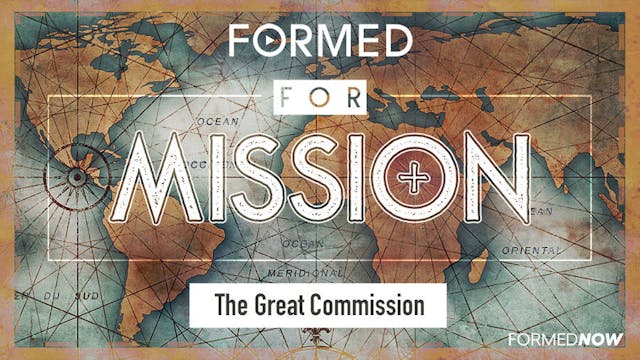Challenging our relativistic culture is not easy. We must have a clear understanding of the classical view of morality and the importance of virtue and friendship, a picture of what real freedom looks like, and a vision for learning the art of living. And most importantly: the guiding and unifying principle for every encounter must be love. Love not only guides what we say and how we say it—it is our reason for saying anything at all.
In this final session we will look at several common questions about moral relativism and how we talk about it to others. These questions will help us reflect on what we have learned in the study and begin to tie it all together in order to go out and engage moral relativism.
Up Next in Most Popular
-
Saint Bernard of Clairvaux | Catholic...
Dr. Ben Akers and Dr. John Sehorn discuss the great Doctor of the Church, St. Bernard of Clairvaux.
-
Formed for Mission Episode 1: The Gre...
Dr. Ben Akers and Taylor Kemp sit down for a weekly show on evangelization and mission.
“Evangelizing is in fact the grace and vocation proper to the Church, her deepest identity. She exists in order to evangelize” (Evangelii nuntiandi, 14). We pray that these discussions may help all the faith...
-
After the Search // Episode 6 // Am I...
Join Tim Gray and Chris Stefanick as they explore the themes of 'The Search' in 'After the Search.'
To rent or own episodes of The Search, click here




3 Comments